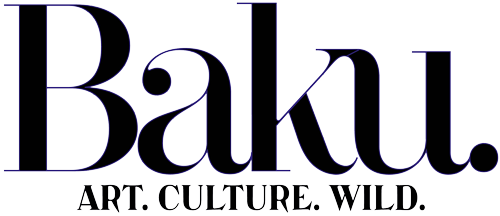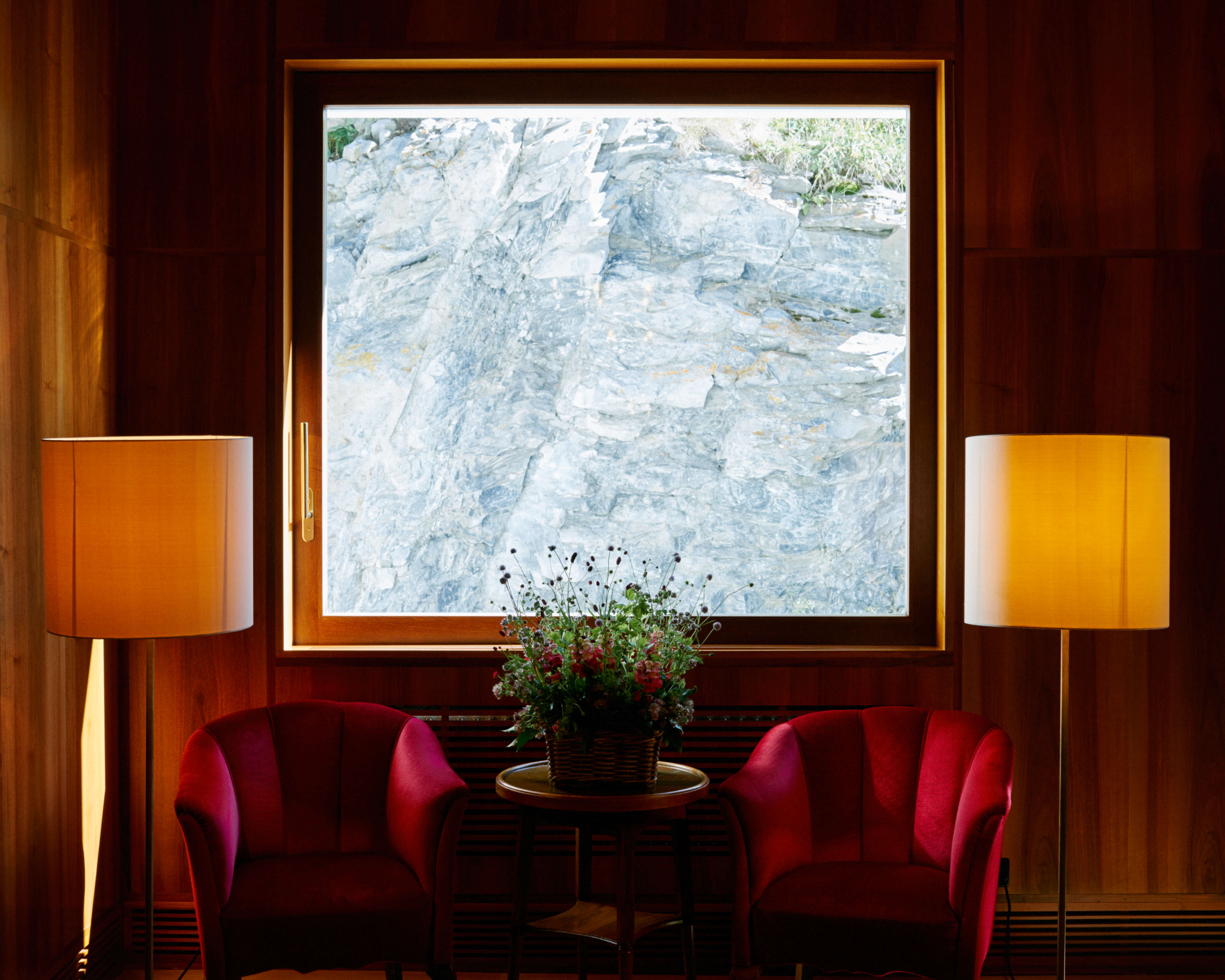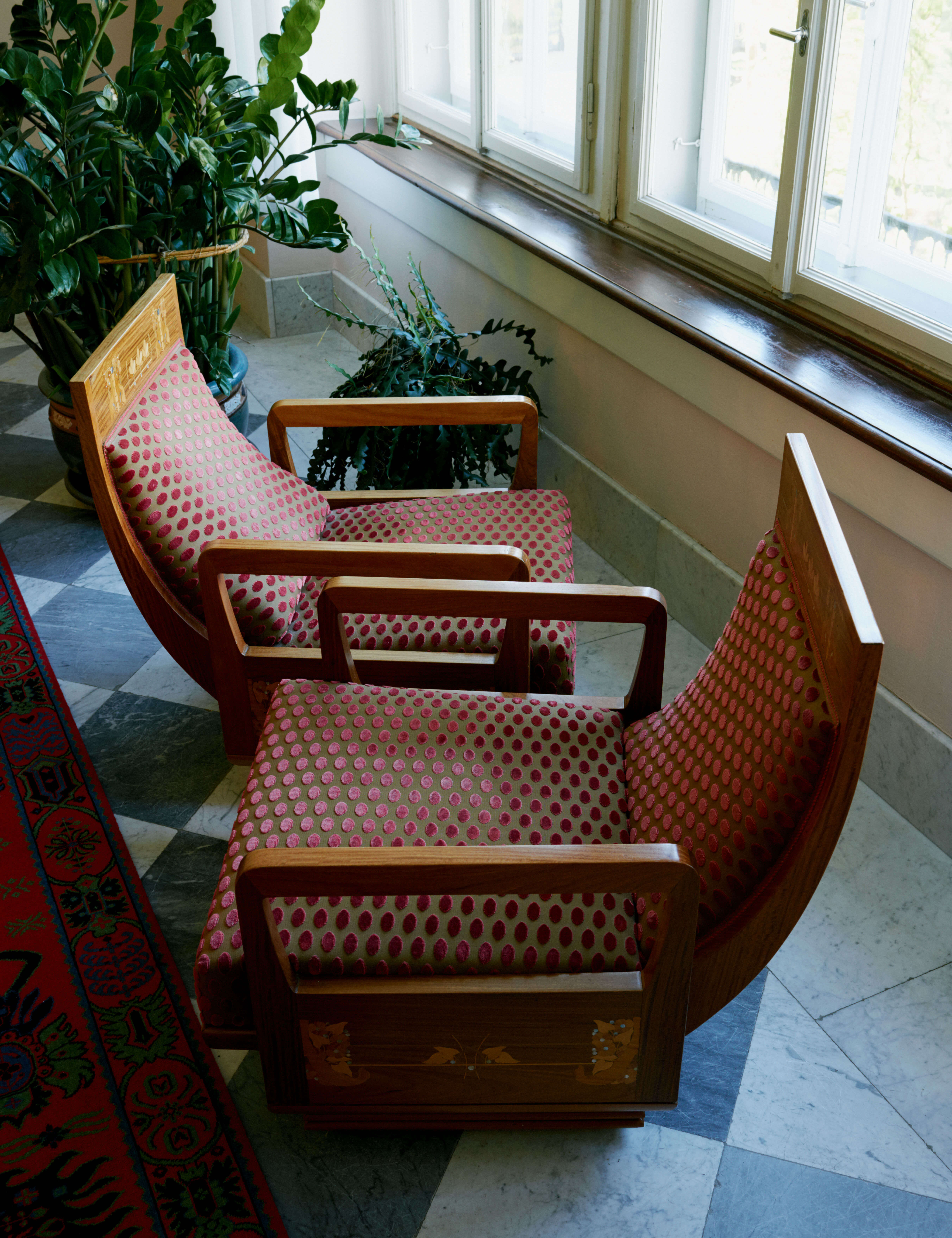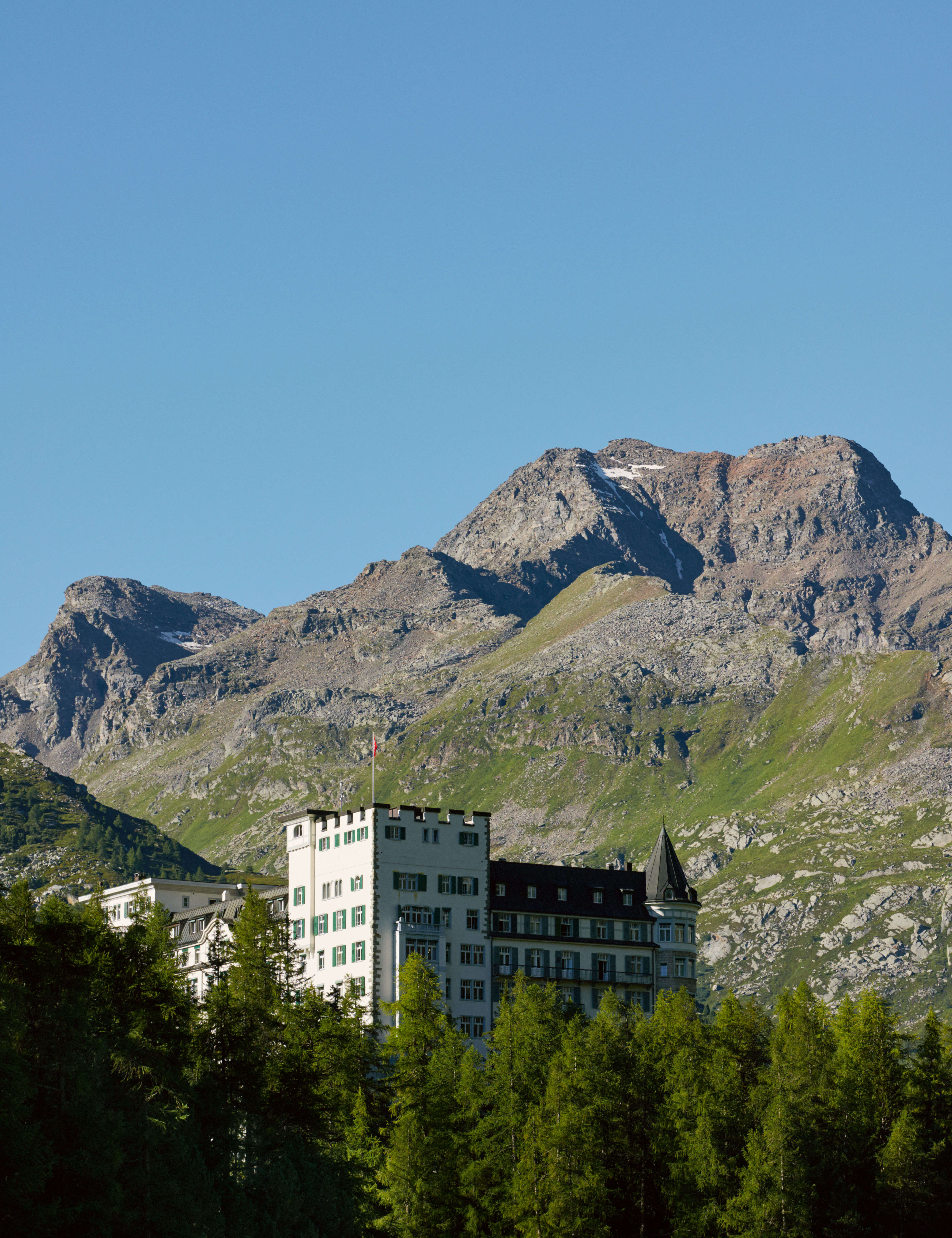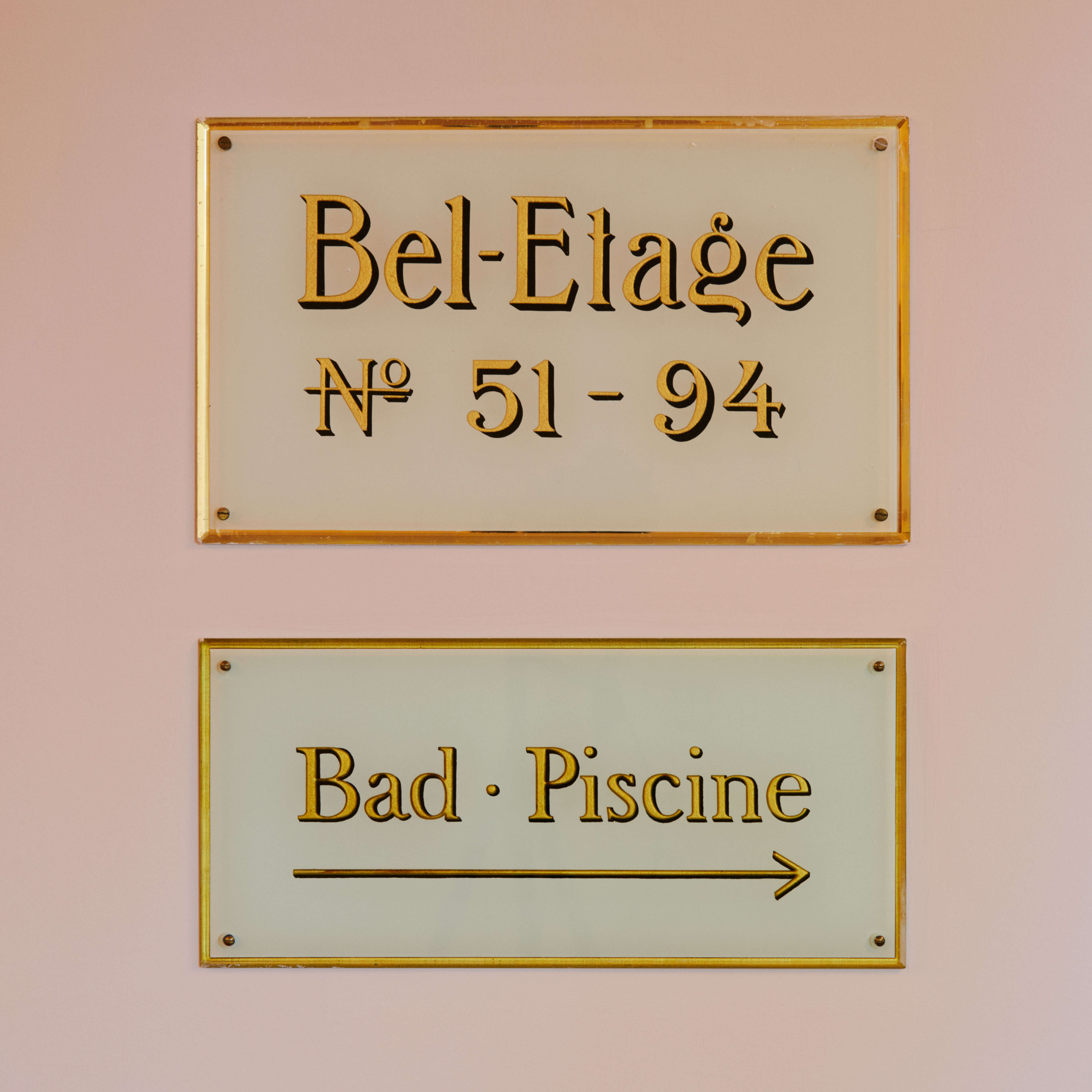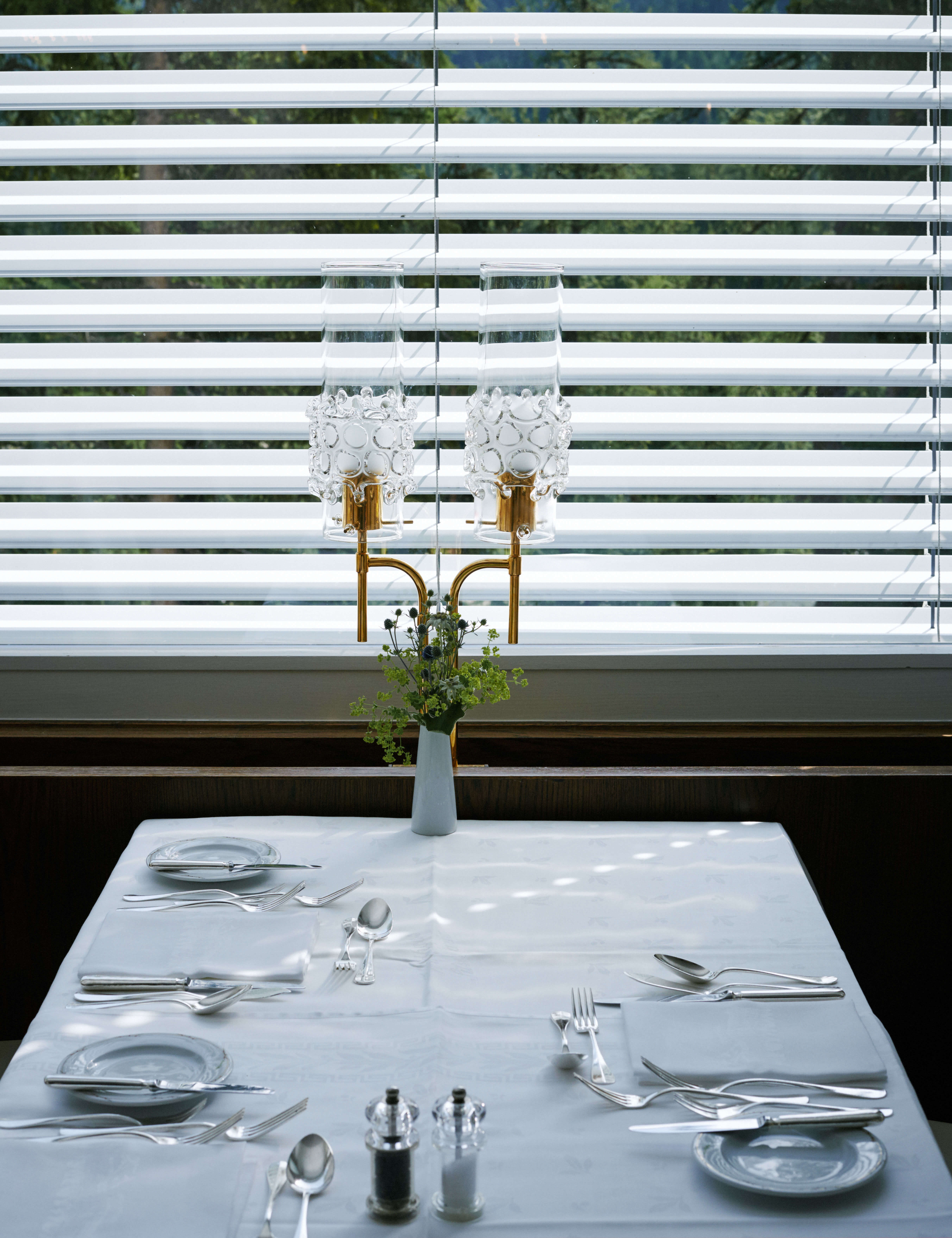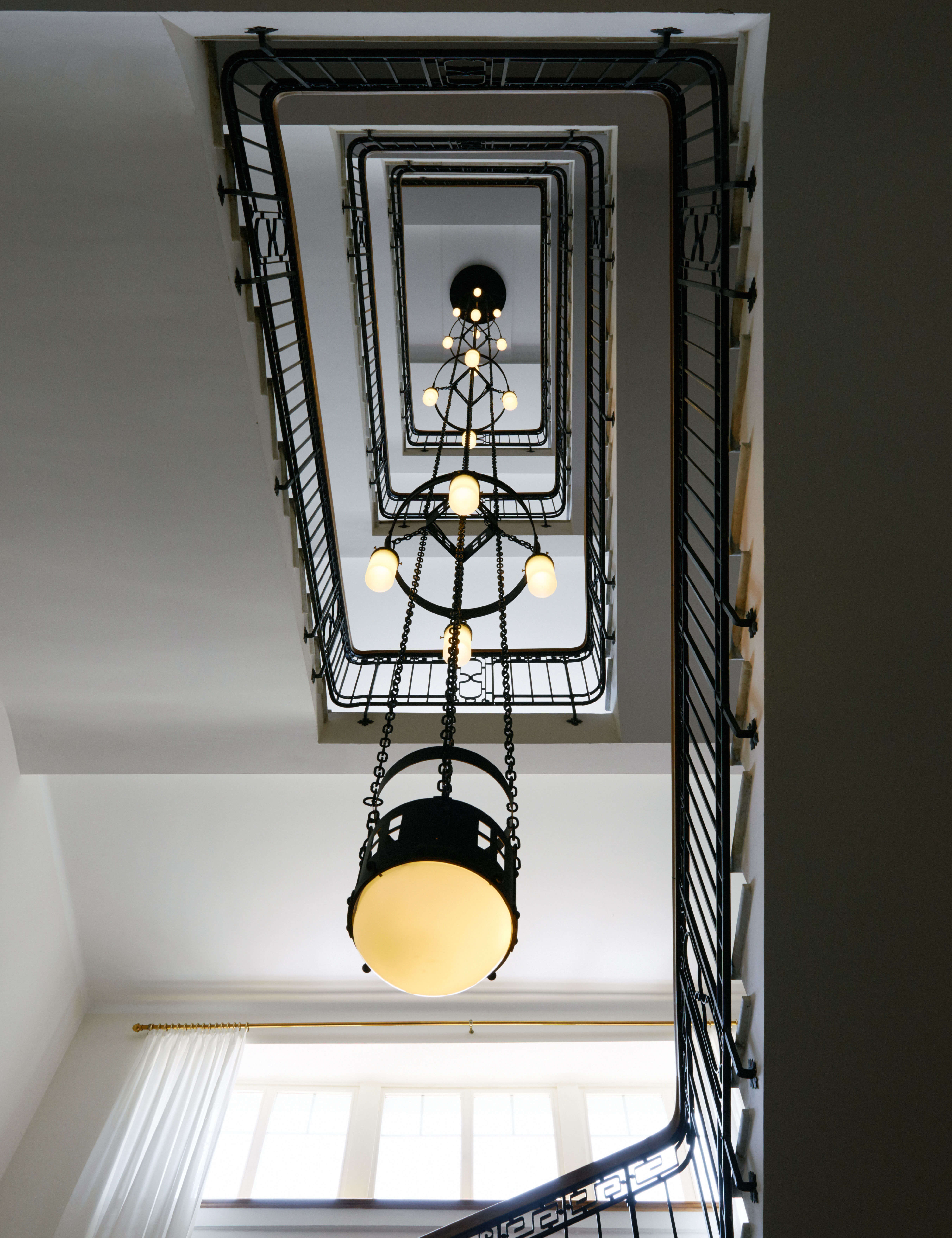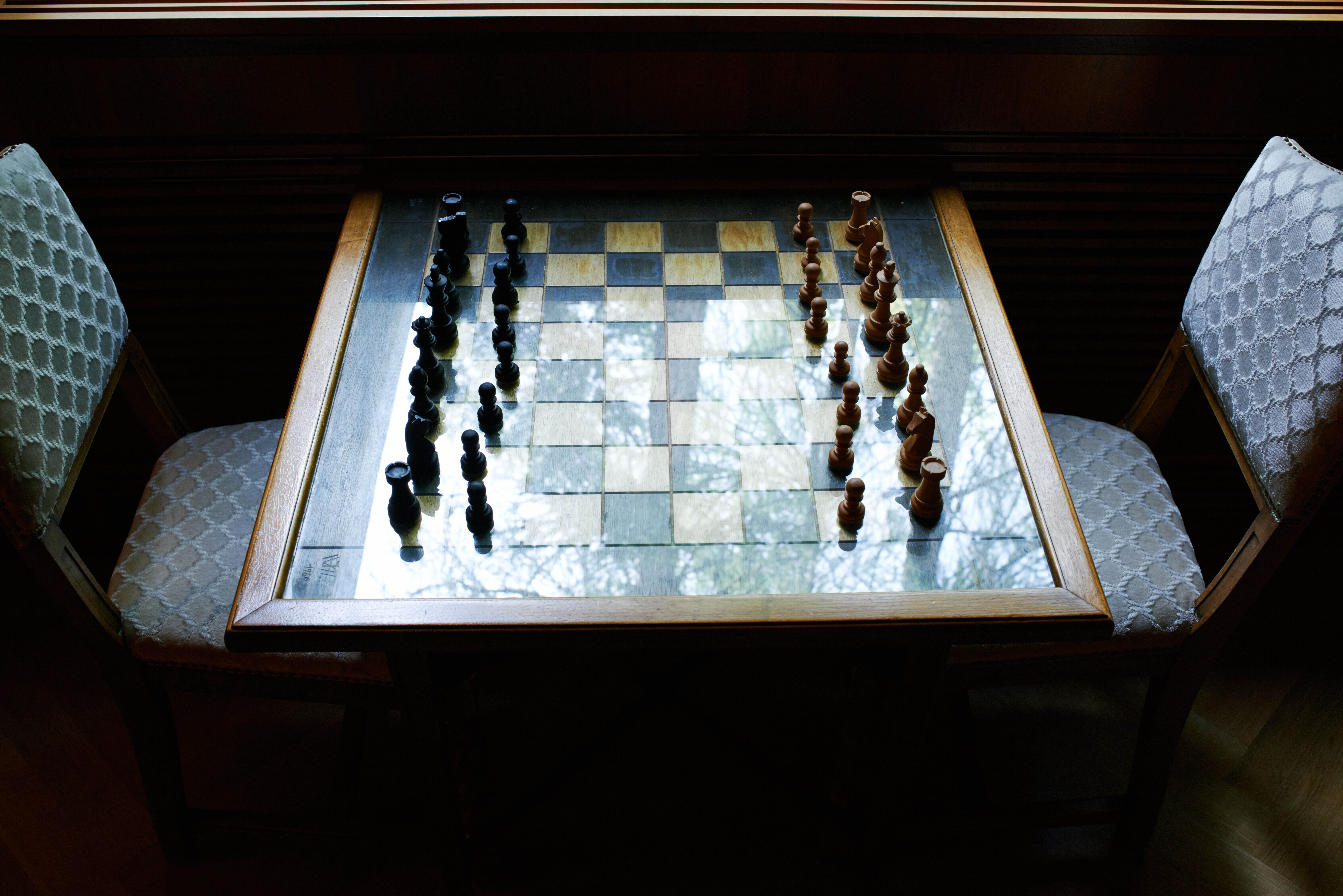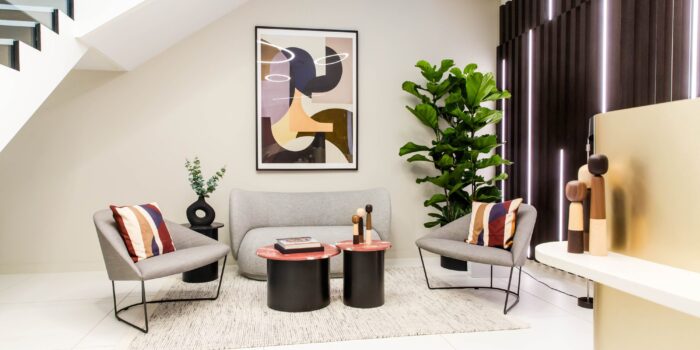For more than 100 years, Lake Sils, above St Moritz in Switzerland, has been a famed inspiration for poets, artists and philosophers. And in the woods above the lake, the Waldhaus is a semi-secret legend among the cultural elite. Albert Einstein, and, more recently, Gerhard Richter have been among those who stay. The Waldhaus is a temple to 20th-century modern design. Each item of furniture, light fitting or window fixture feels like it has been art directed as a still life by the owners, the Dietrich-Kienberger family, who have acquired them through a century and five generations of ownership. The result? Europe’s most spiritually inspiring hotel, if you’re artistically inclined. Here, Urs Kienberger, the fourth generation of the Waldhaus’s founding family and current ‘chief intellectual officer’, guides us through its quiet treasures
In the driving seat
“I would compare our hotel to a classic car, except it does not stand in a museum, roped off from your touch. As a guest you can take your place and actually drive it, so to speak. The Waldhaus is not a relic, rather, it is still her to be used for what it has been intended all along. For that to work, the hotel’s age and history must be more than a theoretical concept – they have to be something present, something you can feel and sense. The past should not be restored to a T, as if it had just come out of the shop. You should be able to feel the age.”
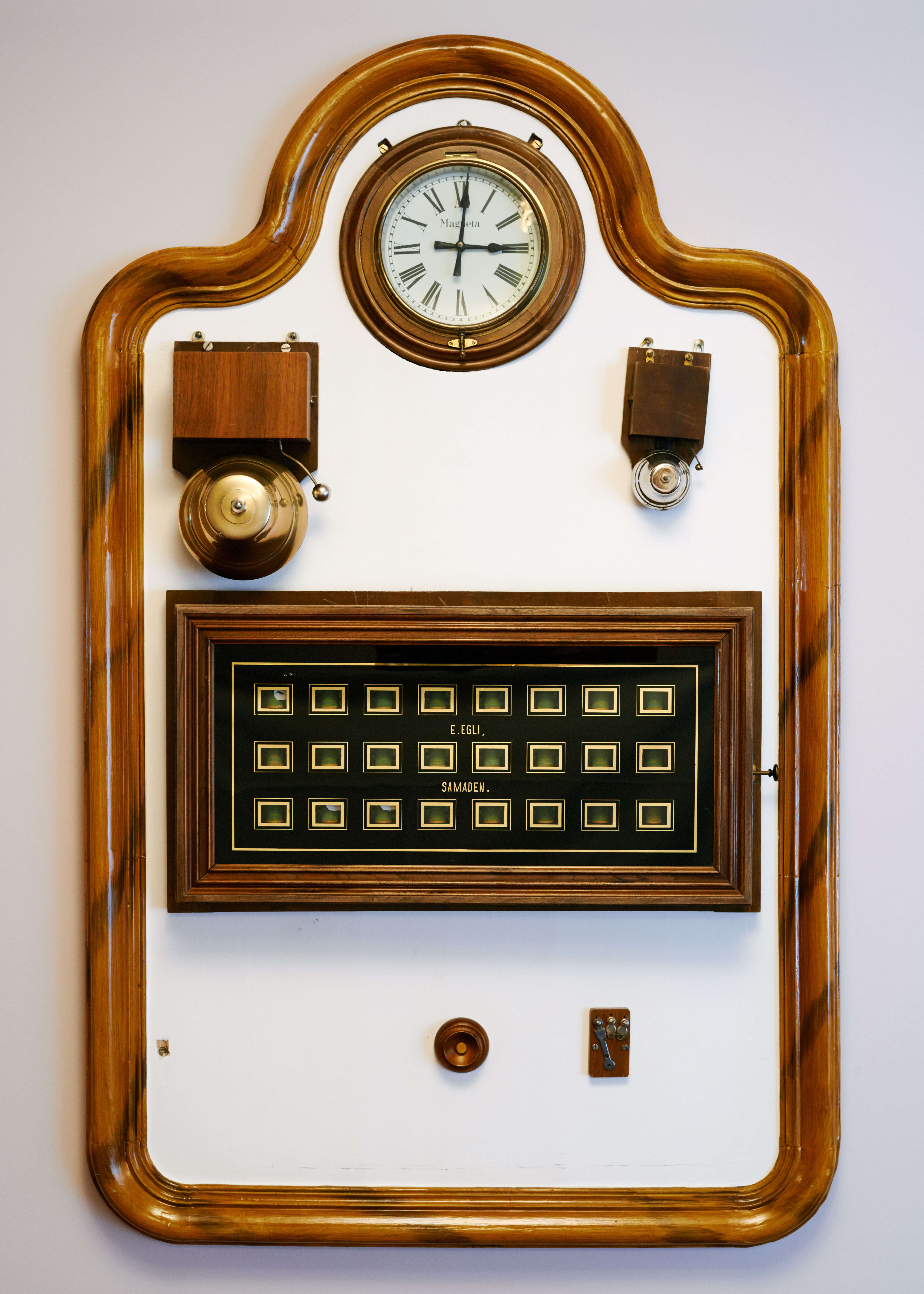
The Waldhaus Hotel embodies some of the greatest design epochs of the 20th century, combining functionality with historical elements, such as the vintage switchboard, which now serves a purely decorative purpose.
Design for living
“When you manage a hotel and work in it you are always a bit at risk to give precedence to function over atmosphere. We, too, know the importance of function. The old switchboard, for example, still has a role even if it is no longer used: to make you see and sense the past.
A blackboard marking arrivals, by contrast, is not only old and quaint, but also highly useful in its low-tech kind of way. All of us, when we go by the offce, know at once who has already arrived, who may have a different room from the one originally planned, whether a guest needs a table in the dining-room, who has a dog along and how many children a family has brought.”
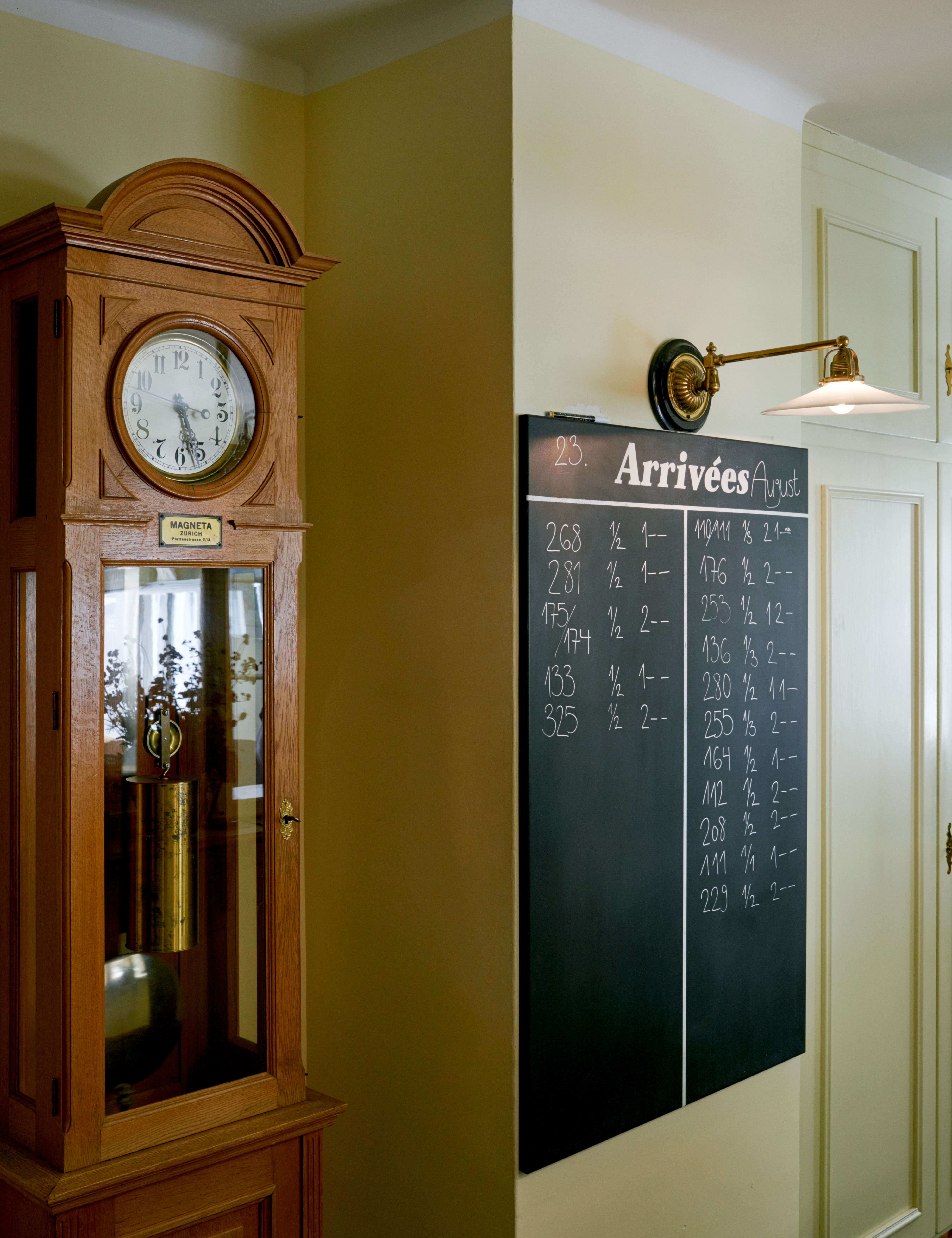
The hotel contains intriguing design elements paying homage to its rich history, including an arrivals blackboard that is still very much in use.
The years between
“We were founded in 1908, during the Belle Époque, but what about the time between then and now? The 1920s, 1960s and the late 20th century? All of these eras have also left traces, much to the irritation of purists who would like to find either pure Belle Époque or pure contemporary. By contrast, our own idea of an old place is that it also shows what came in-between, even when there are tensions and incongruities. It’s like a village, where every street corner might be from a different age. It wasn’t just born at one point in time and – hey presto! – it’s in the present.”
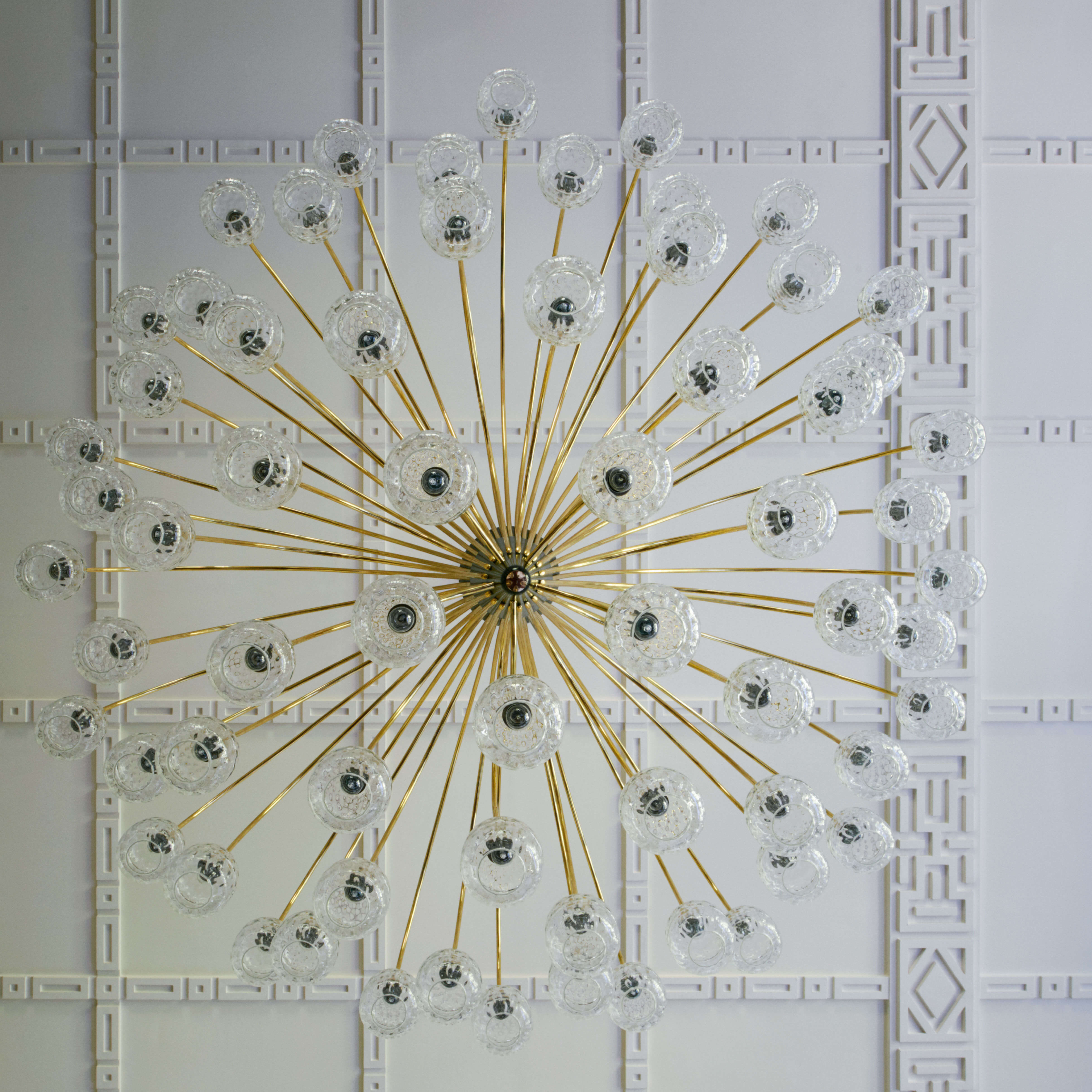
The Waldhaus Hotel combines design fittings from the course of its 110-year history with modern upgrades to present an experience that is at once old and new – fluidly moving through the decades.
Famous patrons
“A hotel is like a very funny kind of book, where it’s almost as if every reader, looking at it, reads a different text. Hermann Hesse will have used and appreciated it for quite different reasons than Marc Chagall or actress Vivien Leigh or the champion skier Kjetil, likewise the lonely old professor in room 252 or the French family with the wild children in room 175.”
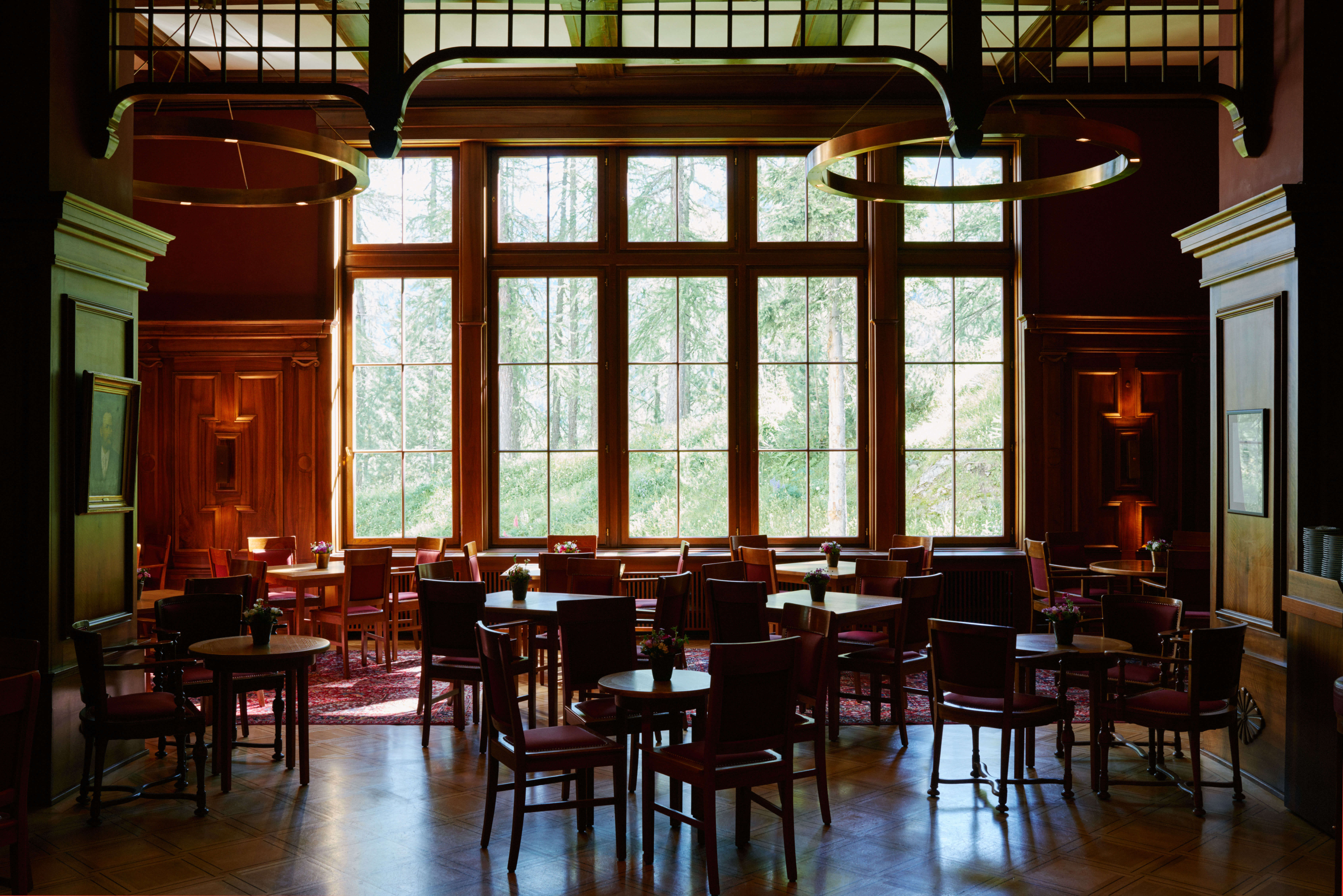
Regular reupholstering and maintenance of the hotel’s interiors ensures that wear and tear are kept at bay, but also that is many elements continue to be lived in and experienced in the contemporary.
A version of this story featured in the autumn 2016 issue of Baku magazine.
Photography by Christian Kain
